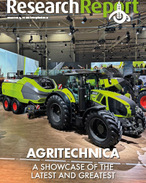This article is 8 years old. Images might not display.
Australian egg exporters are taking advantage of this temporary change, with shipments of fresh eggs already sent to South Korea.
The opportunity arose after the Australian Government – through the Department of Agriculture and Water Resources – and the South Korean Government agreed to export certification conditions which provide technical market access for shelled eggs from Australia.
Austrade’s Seoul-based Senior Trade Commissioner for Korea and Mongolia, Amanda Hodges, said Korea was applying a temporary zero tariff on imported shelled eggs until 30 June 2017.
“While this is welcome news for the industry, helping to highlight Australia’s capabilities of producing high-quality food, Australian exporters still need to meet Korea’s import requirements for shell eggs,” Hodges said.
“South Korea maintains strict requirements for imports and requires all air and sea freight containers of shell eggs to be sealed using an Australian Government seal. The number of the Australian Government seal must also be included on the certificate.”
Hodges said the Department of Agriculture and Water Resources had provided two market access advice notices (number 2017-02 and 2017-03) detailing the necessary requirements to assist exporters of fresh eggs to South Korea.
“From a Korean consumer perspective, Koreans prefer to eat brown shell coloured eggs, rather than white. It is anticipated there may be demand for hatching-eggs and live chicks for breeding at a later date, as Korea seeks to rebuild its laying and breeding stocks,” Hodges said.
Other global suppliers such as the US and Spain have also negotiated export protocols to supply fresh eggs to Korea for the first time.
Hodges also noted that once the tariff returned to normal levels, Australian exporters would still benefit if access is maintained because under the Korea-Australia Free Trade Agreement (KAFTA) the tariff will be reduced over time. Under normal conditions, the tariff in 2017 would be 21%.
Korea is Australia’s fourth-largest trading partner and KAFTA is helping to create a competitive advantage for Australian exporters on a range of products.























